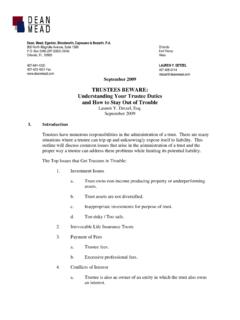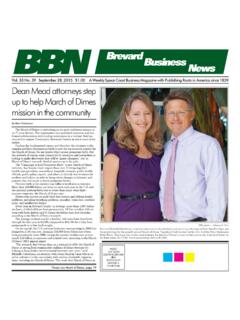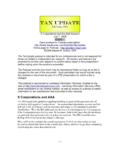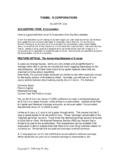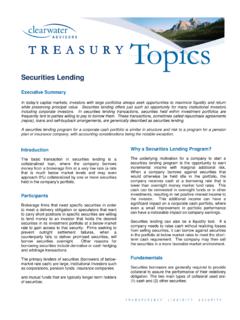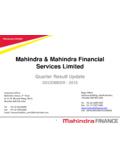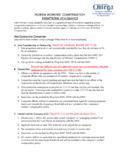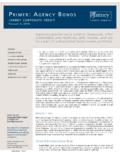Transcription of Redemptions and Purchases of S Corporation Stock
1 CHAPTER 14 Redemptions and Purchases of S Corporation StockSTEPHEN R. LOONEYRONALD A. LEVITTS tephen R. Looney: Shareholder, Dean, Mead, Egerton, Bloodworth, Capouario& Bozarth, , Orlando, FL Looney received his , with honors, in Accounting and BusinessAdministration from Drury College in 1981 and earned his JD., cum laude, fromthe University of Missouri-Columbia in 1984, where he was also a member of theOrder of the Coif and the Missouri Law Review. He received his Master's inTaxation from the University of Florida in 1985, where he graduated first in Looney practices in the areas of tax, corporate, partnership, business andhealth care law, with an emphasis in entity formations, acquisitions, dispositions, Redemptions , liquidations and reorganizations. His clients include closely heldbusinesses, with an emphasis in medical and other professional Looney is a Florida Board Certified Tax Lawyer, and is a member of TheFlorida Bar Association, the State Bar of Texas and the Missouri Bar , he has his CPA Certificate, and is a member of the Missouri Societyof CPAs.
2 Mr. Looney is a past-chair of the S Corporations Committee of theAmerican Bar Association Tax Section. Additionally, Mr. Looney is on the Boardof Advisors and Department Heads for the Business Entities journal where he alsoserves as one of the editors for the Current Developments column. He is also aFellow of the American College of Tax Looney writes and speaks extensively on a nationwide basis on a variety oftax subjects. His articles have appeared in a number of professional publications,including the Journal of Taxation, The Tax Lawyer, the Business Entities journal,the Journal of S Corporation Taxation, the Journal of Partnership Taxation, and theJournal of Corporate A. Levitt: Shareholder, Sirote & Permutt, , Birmingham, AL Levitt recently joined the Birmingham, Alabama firm of Sirote & Permutt, Ronald's practice focuses on business and tax planning issues, particularly forclosely held and family owned businesses.
3 Specifically, Ronald counsels clients inthe areas of business planning, mergers and acquisitions, federal and state taxplanning and controversy matters, health care law (focusing on the representation ofphysician practices) and estate INSTITUTE14-214-3S Corporation Stock [ii]General Distribution Rules for S Corporations WithRonald has been listed in Best Lawyers in America in Taxation since 1994 andhas been named as a Fellow in the American College of Tax Counsel. He currentlyserves as Chairman (after chairing several subcommittees) of the ABA TaxationNo Earnings and Profits[Hi]General Distribution Rules for S Corporations WithEarnings and ProfitsSection's S Corporation Committee. He has served as Chairman of the AlabamaBar's Tax Section and as President of the Birmingham Tax Forum and the Federal[iv]Ordering of Adjustments to BasisTax Clinic, Inc. He also has served as an adjunct professor of law for both the[v]AAA Bypass ElectionUniversity of Alabama School of Law's LLM in Taxation Program and Cumberland[vi]Allocations of Tax ItemsSchool of Law, teaching partnership taxation and is a frequent speaker for seminarson business and tax law issues and is a frequent instructor for the American Bar[vii]Structuring Non-Exchange RedemptionsAssociation Tax Section, the New York University Institute on Federal Taxation, the[3]Impact on the CorporationAlabama Society of CPAs, the Federal Tax Clinic, Inc.
4 , the Birmingham Tax Forumand other organizations. He is a member of the American Bar Association, the[a]C CorporationsBirmingham Bar Association and the Alabama State Bar.[b]S CorporationsRonald is co-author of "Avoiding Unreasonable Compensation Attacks on[4]Distributions Under Section 303 Professional Service and Other Closely Held Corporations" published in BNA'sExecutive Compensation Library, (2004). He also co-authored "Shareholder[a]QualificationAgreements for Closely Held Corporations," 15 Business Entities 20, 2003,"Reasonable Compensation Issues for Closely-Held and Service Companies", whichwas presented at the 61st New York University Institute on Federal Taxation ( Ann. Inst. Fed. Tax'n 16 (2003)) and "Drafting Shareholder Agreementsfor Closely-Held C and S Corporations", which was presented at the 60th New [b]UtilityCross- purchase [1]Impact on Selling Shareholder[2]Impact on Cross- purchase BuyersYork University Institute on Federal Taxation (60 Ann.)
5 Inst. Fed. Tax'n[a]Cross- purchase Buyers of C Corporation Stock 18 (2002)). He also is the author of "What ERA '93 Giveth and Taketh Away:Investment Incentives and Revenue Raisers", 5 Journal of S Corporation Taxation[b]Cross- purchase Buyers of S Corporation Stock339, 1994 and co-author of "Will the Real One-Class-of- Stock Rule Please Stand[3]Impact on CorporationUp?", 2 Journal of S Corporation Taxation 251, 1991. Opportunities and Pitfalls in Connection With Terminat-ing Elections[1]Example 1 SYNOPSIS[2]Example 2[3]Example 3 [4]Importance of Terminating Election Timing and Character- of Income[1]In General[2]Impact on Redeemed Shareholder[a]C Corporation Shareholders Special Considerations Applying to The Redemption andPurchase of S Corporation Stock [1]Single Class of Stock Rule[i]Dividend Treatment[a]Voting Rights[ii]Importance of Sale or Exchange Treatment[b]Non-conforming Distributions[iii]Sale or Exchange Treatment[c] Stock Taken Into Account[iv]Substantially Disproportionate Redemption[d]Governing Provisions[v]Complete Termination Redemptions [e]Routine Commercial Contractual Arrangements[vi]Attribution Rules[f]State Law Requirements for Payment and Withholding[vii]Statutory Waiver of Family Attributionof Income Tax[viii]Entity Waiver of Family Attribution Rules[g]
6 Distributions that Take Into Account Varying Interests[b]S Corporation Shareholders[hiBuy-Sell, Redemption and Other Stock Restriction[i]Applicability of Section 302 to S CorporationAgreementsShareholders INSTITUTE14-414-5S Corporation Stock [2][i]Agreements Triggered by Death, Divorce, Disabilityor Termination of Employment[ii]Buy-Sell Agreements, Stock Restriction Agreementsand Redemption Agreements[i] Special Rule for Section 338(h)(10) Elections[2]Pricing Considerations[3] Redemptions Funded with Life Insurance Proceeds Sales and Redemptions of Partnership Interests[1]General Rules Governing Sales of Partnership Interest[2]Purchaser's Basis in Partnership Interest[3]Rules Governing Redemptions of Partnership Interest[a]Non-Recognition of Gain or Loss on Current Distributions[b]Basis and Holding Period of Currently DistributedProperty[c]Reduction in Basis of Partnership Interest Resulting fromDistributionsEd] Non-recognition of Gain or Loss on LiquidatingDistributions[e]Basis of Property Received in a Liquidating Distribution[f]Non-Recognition of Gain or Loss by, and Effect on Basisto, Distributing Partnership[g]Section 737[h]Marketable Securities[i]Special Basis Adjustments[j]Characterization of Post-Distribution Gain or Loss toDistributee-Partner[k]
7 Post-Distribution Depreciation or Cost RecoveryDeductions INTRODUCTIONR edemptions and Purchases of Stock , and in particular, S corpora-tion Stock , can raise a number of tax issues for the seller, thepurchaser, the Corporation itself and even the shareholders of thecorporation not directly involved in the sale, purchase or redemp-tion. Practitioners should be well versed in the rules applicable toredemptions and Purchases of Stock in order to take full advantageof planning opportunities and to avoid serious pitfalls for theuninformed. Redemptions [I] In GeneralIncome tax planning for a redemption is more complicated thanthat required for a cross- purchase , 1 as it involves consideration notonly of the economics of the transaction, but also the character ofthe income or gain realized and recognized and the ability to offsetsuch gain against the seller's adjusted basis in the shares which aresold or redeemed.
8 The rules of Sections 302(b) and 303, by which"sale or exchange" treatment may be obtained, are complicated, andany redemption must be carefully designed to assure that theredemption of a shareholder's Stock will qualify for sale or ex-change treatment. The practitioner must consider the probablesituations under which a redemption is likely to occur, and whethersale or exchange treatment is likely to be available. If it is clearto the practitioner that sale or exchange treatment will not beavailable and it is desirable for the redemption to qualify for saleor exchange treatment, a cross- purchase should be utilized.[2] Impact on Redeemed Shareholder[a] C Corporation ShareholdersUnless a redemption meets the requirements of Section 302(b)or 303, a corporate distribution in redemption of Stock is taxed asa dividend to the redeemed shareholder: 15% dividend rate to theextent of the Corporation 's earnings and profits, without regard tothe shareholder's Prior to the Jobs and Growth Tax ReliefReconciliation Act of 2003,3 dividend treatment was even moredisadvantageous since dividends were treated as ordinary incomesubject to a maximum marginal individual tax rate of 35%.
9 [i] Dividend TreatmentDividend treatment can be particularly disastrous with respectto post-mortem Redemptions , since the estate of a deceased1 , infra, for a discussion of the tax issues relating to 302(d), 301 and 302. Such income, either dividend income or capitalgain, constitutes portfolio income under Pub. L. No. 108-27 (2003). [2]64TH INSTITUTE14-6shareholder would normally recognize no taxable gain on a saleor exchange of A is a shareholder of the ABC Corporation , a Ccorporation. Pursuant to a redemption agreement, A's Stock isto be redeemed after his death for $500,000 ($500 per share forhis 1,000 shares). The Corporation has substantial accumulatedearnings and profits. If the redemption is taxed as a sale orexchange of the Stock in accordance with Section 302(a) or 303,the estate recognizes no gain because its income tax basis is $500per share pursuant to Section 1014 (the same as the sales price).
10 If the redemption is taxed as a dividend under Section 302(d),however, the estate has $500,000 of dividend income, withoutregard to its basis and a corresponding $500,000 long-term [ii] Importance of Sale or Exchange TreatmentAvoiding dividend equivalence in a redemption is critical becauseof the ability to benefit from a shareholder's basis in his or hershares. The primary reason for avoiding dividend treatment is theability to receive basis tax-free in a redemption treated as anexchange, in contrast to a dividend equivalent redemption wherebybasis is not recovered until (and unless) the Corporation hasdistributed all of its earnings and profits. Any residual unrecoveredbasis constitutes long-term capital loss, which by virtue of thelimitation contained in Section 1211(b) 5 , may be of limited must keep in mind that the 15% dividend tax rateof Section 1(h)(11) is scheduled to sunset for tax years beginningafter December 31, 2008, although legislative proposals have beenmade to eliminate or defer the sunset date.

